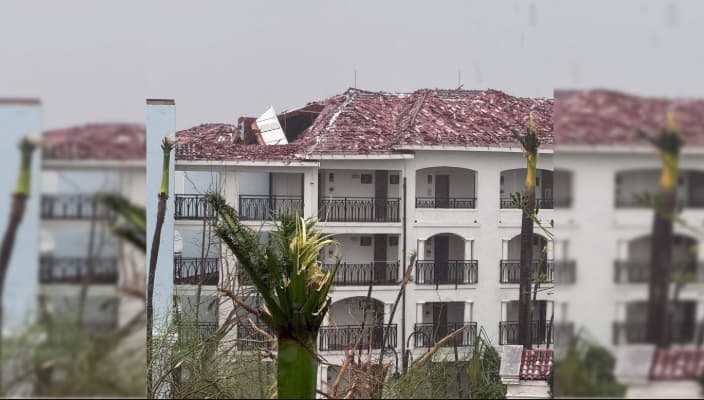
Trinidad: 3 firearms seized and 2 held in crime eradication exercise
2024-08-07 09:42:54
Relief teams have distributed over 36,000 food packages, with 184 shelters still housing 2,487 displaced people.

Jamaica: Over 120,000 buildings in Western Jamaica have lost their roofs which has affected nearly 90,000 families due to the passage of Hurricane Melissa. The relief teams have been working closely with the government to offer assistance to the affected people and the cleaning work has also been completed.
Relief teams have delivered over 36,000 food packages and 184 shelters are still open housing 2,487 displaced persons. ODPEM Director General Commander Alvin Gayle shared the update and added that they are running a 24/7 emergency operation with support from government, private sector and international partners.
Notably, during the first days after Hurricane Melissa, relief was active and responding to urgent needs that were required to meet the basic needs of the public. Now, the first and the urgent phase is over and the government has now moved to a systematic, long-term relief effort that is now coordinated by ODPEM under the Office of the Prime Minister.
The government added that they are aiming to reach every affected community and deliver sustained aid to an estimated 600,000 Jamaicans across six parishes. Relief will continue for months, ensuring no one is left behind.
Earlier, the government also announced the allocation of the foods, water and medical supplies to every affected community. Prime Minister Andrew Holness announced that they are launching a “Building Support Programme” who will assist households in hardest-hit parishes.
He said that, "$10 million will be allocated to each constituency in St. Elizabeth, Westmoreland, Hanover, St. James, and Trelawny. $5 million each for St. Ann, Manchester, and Clarendon."
PM Holness noted, “This targeted approach ensures that resources go where they are needed most, helping families rebuild their lives and communities.”
The effects of Hurricane Melissa go beyond damage to homes and infrastructure, this disaster has struck at the heart of our productive capacity. Unlike COVID-19, where our productive assets remained intact, this time we have lost farms, businesses, and schools that must now be rebuilt from the ground up.
On top of these losses, there are major costs tied to the relief effort, debris management, cleanup operations, food distribution, and support for displaced families. The relief phase alone will require substantial budgetary allocations from the Government, as external aid can only sustain us for a limited time.
Cleanups will be extensive, this is why the government has announced a National Cleanup Programme, which may extend for weeks or even months given the scale of debris across the island.
At the same time, the government must restore key services, reopening schools, hospitals, and businesses, all of which come with significant costs.